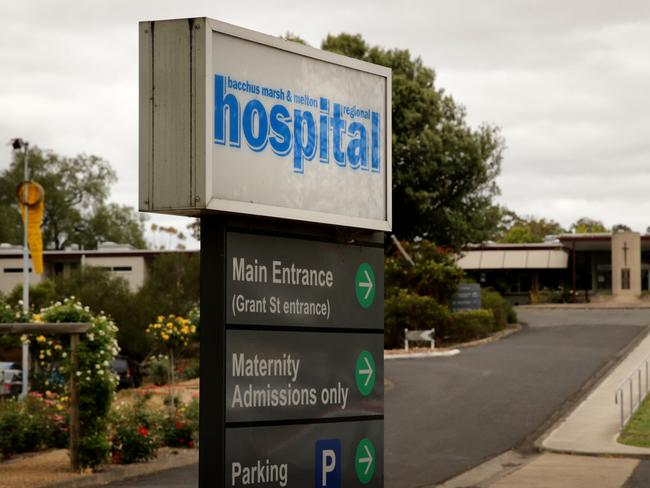Rising medical mistakes cause one death a week in public hospital wards
A PATIENT a week was killed by errors such as botched operations and dosage mistakes at state public hospitals last year, according to a quality control body.
VIC News
Don't miss out on the headlines from VIC News. Followed categories will be added to My News.
A PATIENT a week, on average, was killed by errors at state public hospitals last year.
Critical errors such as botched operations and dosage mistakes, some fatal, leapt 53 per cent on the year before.
Instruments were left inside surgery patients, and in one case surgeons operated on the wrong body part of the patient.
Of 72 critical errors reported by Victoria’s public hospitals in 2016-17, 54 led to the death of the patient.
BOX HILL HOSPITAL BEDS LINKED TO PATIENT DEATHS
ONE IN 10 VICTORIAN SURGICAL DEATHS NON-RISK PATIENTS
SECRET $10M PAYOUTS IN BACCHUS MARSH BABY TRAGEDY

But Safer Care Victoria, which works to assure quality and improve safety in healthcare, said the dramatic increase in recording of serious adverse events was not a result of falling standards.
“We are not seeing more harm — I am confident hospital errors are not going up, but there is better reporting,” SCV chief executive officer Professor Ewan Wallace said.
He said this followed the neonatal deaths scandal at Bacchus Marsh hospital.
He said he believed serious errors remained under-reported in Victoria, and expected notifications to rise 50-100 per cent in coming years.
“We should feel safer that the number has gone up, because it means the system is learning much better,” he said.

Fatalities included seven suicides of patients in care and a dozen deaths from injuries suffered in falls while in hospital.
In other tragic cases:
EIGHT surgery patients died of complications;
ONE patient was put on the wrong type of heart-lung bypass machine;
ONE patient choked to death after being served an inappropriate meal, despite having a known problem swallowing;
THREE patients died as a result of medication errors, one of whom was given a dose 10 times what was prescribed;
THREE women died during childbirth.
Delays in scheduling urgent colposcopies led to a failure to detect cancer in four women until the disease had advanced.
Dressings, needles, wires and orthopaedic equipment were left in some surgery patients for up to nine months.

Surgeons put a stent in the wrong body part of one patient, causing serious damage.
Prof Wallace said he believed many less severe “wrong body part” mistakes were not reported, and change was needed.
“While it may not have resulted in death or permanent loss of function today, the next time it happens it might,” he said.
“Let’s not wait for that.”
Private hospitals and cosmetic surgery clinics must now also report adverse events, and Health Minister Jill Hennessy said greater transparency was improving safety.


